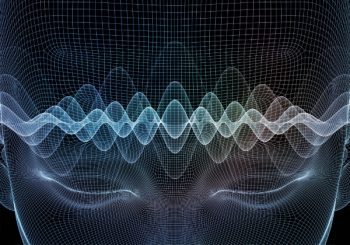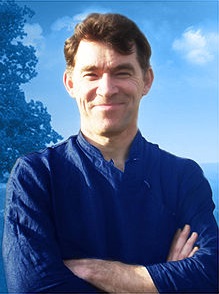Guest writer for Wake Up World
In a May 4, 2020 Psychology Today post titled “Life Is Short and the World Will End, Can It Have Meaning?” psychiatrist Dr. Ralph Lewis reflected the view of most mainstream scientists that consciousness is entirely the product of individual physical brains. My view is that consciousness may be a fundamental property of the universe that transcends our individual brains. I also hold the view that psi phenomena such as telepathy and precognition are real. Dr. Lewis argues that if the assumptions of parapsychology were true, then practically all of science would have to be wrong. I argue that psi is actually compatible with science.
[pro_ad_display_adzone id=”110028″]
The following debate between myself and Dr. Lewis is adapted from the Comments section of Dr. Lewis’s May 4 post, by mutual agreement.
STEVE:
A good example of fundamentalist materialism
To paraphrase Hamlet, there is certainly ‘much more in heaven and earth’ than suggested by this post [referring to the May 4 post]. The post is based on the assumption that the materialist view of reality is correct, i.e., that matter is the only or primary reality and that all seemingly non-material things (like mind or consciousness) can be explained in terms of the interactions of material particles. There is also an assumption that the reality perceived by human beings is objective and provides us a fairly complete picture of the world. However, every animal has a limited awareness of reality and so do human beings. We cannot afford to ‘close our accounts with reality’, as William James pointed out. There must be a massive range of phenomena and forces that we are presently unaware of.
Indeed, higher states of consciousness suggest that our normal awareness is limited and does not give us a reliable picture of the world. They reveal a more expansive reality which suggests that materialism is a very partial view, created by the limitations of our awareness. (I refer to higher states of consciousness as ‘awakening experiences’ when our awareness expands and intensifies and have done a great deal of research on them.) In actuality, materialism does not work as a way of explaining the world. (See the book Irreducible Mind and my own book Spiritual Science). There are a vast range of ‘anomalous’ phenomena which materialism disregards or denies because it cannot explain them.
RALPH:
Dualism
Thank you Steve for your thoughtful comments.
In another post “Is There Life After Death? The Mind-Body Problem,” I explained why the dualistic view—that consciousness exists independent of the physical brain, is fundamentally incompatible with the scientific view that mind is the product of the physical brain and nothing but the brain. As I said in that post: ‘Either science is right or there is a spiritual realm. They can’t both be true.’ I explained there:
Dualism so fundamentally contradicts the foundations and entire accumulated evidence of modern science that in order for it to be true, we would have to start rebuilding modern science from the ground up. If dualism turned out to be true, it would also be a complete mystery or fluke as to how most of our advanced technologies (including all of our electronics) work at all, since their design and engineering are based on the very principles that would necessarily be entirely invalidated if dualism were true.
My book Finding Purpose in a Godless World goes into more detail on the mind-body or mind-brain problem, as well as addressing in depth the mistaken assumption that the scientific worldview is nihilistic.
Steve, the amount of independently replicated evidence for the kind of paranormal phenomena described in the book Irreducible Mind that you refer to, and in the other similar parapsychology literature, is precisely zero. See my post “What Is the Allure of the Paranormal in Our Scientific Age?“
The view that you articulate, Steve, is indeed a thoughtful one, and one that feels intuitively correct, which is why so many intelligent people hold it. It is not an intellectually weak argument. It is simply misinformed—or to be more exact, under-informed. Dig deeper. The mainstream scientific evidence is far deeper and more complex than most people think.
STEVE:
Significant evidence for Psi
Thanks for your comments, Ralph. I agree that there is a sense of wonder in the materialist worldview and that we can all feel grateful to be born into this glorious world and enjoy exploring it. This is one aspect of Richard Dawkins’ writings that I admire.
But there is still a strong element of nihilism. If we are all just biological machines, then there is no reason why we can’t just base our lives on hedonism and gratification and put our own self-centered desires before other people’s needs. In fact, the adoption of the materialist worldview by our culture underpins our rampant consumerism. Materialism as a worldview has led to materialism as a lifestyle. To say the world is glorious and beautiful (which it is) is simply like telling a prisoner to enjoy himself because his cell is painted in beautiful colours. It doesn’t change the fundamental meaninglessness of our predicament.
A point about the relationship between the mind and brain: dualism is not the only alternative to the idea that consciousness is produced by the brain. Many contemporary scientists and philosophers (e.g. Thomas Nagel, David Chalmers, Philip Goff to name but a few) reject the idea that consciousness is entirely produced by the brain and believe that consciousness is in some sense fundamental to the universe and to matter. Some possible alternative approaches are panpsychism, dual-aspect monism, and varieties of idealism. My own preference is ‘panspiritism’ (as explained in Spiritual Science) which assumes that there is a ‘fundamental consciousness’ which pervades all matter and space, and from which matter emerges.
It mystifies me that you say that there is no replicable evidence of psi phenomena. In fact, there is a great amount of such evidence. Rates of replication in psi are higher than in other areas of science. There is also nothing in psi phenomena such as telepathy and precognition which is incompatible with the theories and findings of modern physics.
Take a look at the recent paper ‘The Experimental Evidence for Parapsychological Phenomena’ in American Psychologist by Etzel Cardeña. Cardeña shows clearly that the evidence for phenomena like telepathy, precognition, and clairvoyance has proven so significant and consistent over a massive range of different experiments over many decades that it cannot simply be explained away in terms of fraud, the “file drawer” effect or poor methodology.
Many hardline materialists have simply adopted a prejudicial view that such phenomena cannot possibly exist, as a kind of fundamentalist position. In my view, any open-minded person would think that the evidence is strikingly strong.
There are theoretical reasons why psi phenomena could (and should) exist. In physics, linear time appears to be an illusion. Time is more like space, spread out like a panorama. We also know at the quantum level time behaves very strangely. In some instances, cause and effect appear to be reversed. (Here I can refer you to the concept of retrocausation and the transactional theory of quantum physics.) All of this perfectly compatible with precognition. Please tell me why it isn’t! Then when you look at the experimental evidence (e.g. from Daryl Bem’s experiments, which have been replicated many times) I think we have a very plausible case. (For a summary of the reasons why I’m open to the existence of psi see my article here.)
All best,
Steve
Originally published at Psychology Today and reproduced with permission.
Recommended articles by Steve Taylor, Ph.D:
- The Guru Syndrome: When Spirituality Turns Sour
- Are Children Saner Than Adults?
- Can Suffering Make Us Stronger?
- Transformation Through Dying: The Aftermath of Near Death Experiences
- Elation: The Amazing Effect of Witnessing Acts of Kindness
- The Power of Forgiveness: The Transformational Effect of Letting Go of Resentment
- The Power Of Silence
- Happiness Comes from Giving and Helping, Not Buying and Having
- Empathy – The Power of Connection
- If Women Ruled the World – Is a Matriarchal Society the Solution?
About the author:
Steve Taylor is a senior lecturer in Psychology at Leeds Beckett University, UK. His latest books in the US are The Calm Center and Back to Sanity: Healing the Madness of the Human Mind. He is also the author of The Fall, Waking From Sleep, and Out Of The Darkness. His books have been published in 19 languages. His research has appeared in The Journal of Transpersonal Psychology, The Journal of Consciousness Studies, The Transpersonal Psychology Review, The International Journal of Transpersonal Studies, as well as the popular media in the UK, including on BBC World TV, The Guardian, and The Independent.
Connect with Steve at StevenMTaylor.com.
[pro_ad_display_adzone id=”110027″]








